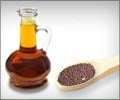Researchers suggest that the development of a new technology can help cardiologists prevent blood clots

Not only could the HDL nanotherapy potentially avert repeat heart attacks, it may also have the power to reduce recurrent strokes caused by clots in brain arteries, says the study's senior investigator, Willem Mulder, PhD, Associate Professor of Radiology in the Translational and Molecular Imaging Institute at the Icahn School of Medicine at Mount Sinai.
"We envision that a safe and effective HDL nanotherapy could substantially lower cardiovascular events during the critical period of vulnerability after a heart attack or stroke," says Dr. Mulder.
"While we have much more to do to confirm clinical benefit in patients, our study shows how this nanotherapy functions biologically, and how this novel concept could potentially also work in the clinical setting to solve a critical problem," says Dr. Mulder. "This nanotherapy would be the first of its kind."
Inject HDL Statin-Nanotherapy Right After Heart Attack and Stroke Treatment
The research team, led by two PhD graduate students as first authors — Raphael Duivenvoorden, MD, and Jun Tang, MS— fashioned the nanoparticle to resemble an HDL cholesterol particle. In fact, the nanoparticle binds on to the same receptors as natural HDL in order to deliver the statin drug.
Advertisement
Inflammation is the main driver of plaque buildup in arteries. Without inflammation, as well as lipid deposition in blood vessels, clots would not form. As inflammation progresses, macrophages secrete enzymes that degrade the walls of blood vessels, leading to a break in the vessel and the formation of clots. These clots can then clog arteries, leading to a heart attack or stroke.
Advertisement
Source-Eurekalert















